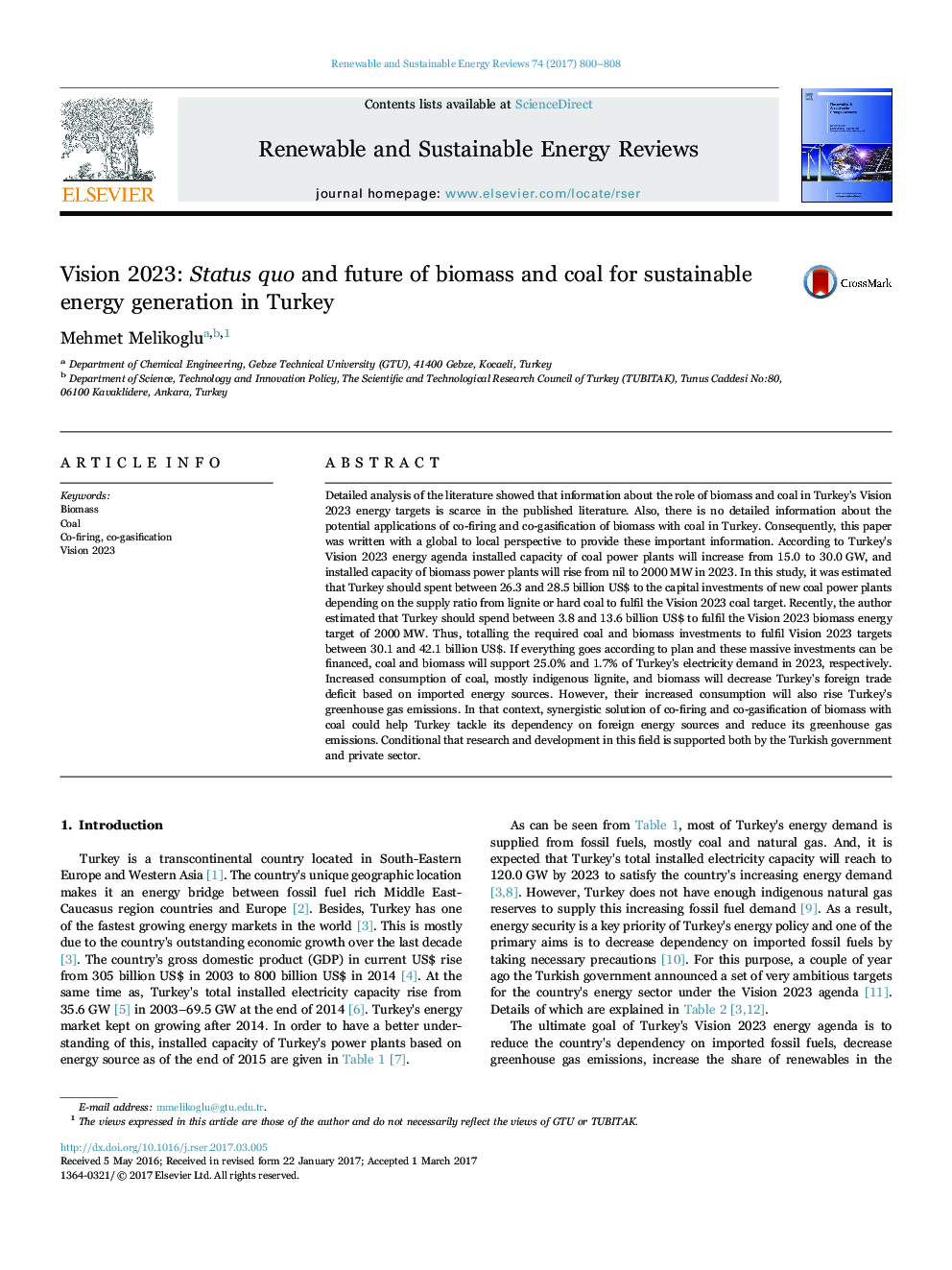| کد مقاله | کد نشریه | سال انتشار | مقاله انگلیسی | نسخه تمام متن |
|---|---|---|---|---|
| 5483158 | 1522312 | 2017 | 9 صفحه PDF | دانلود رایگان |
عنوان انگلیسی مقاله ISI
Vision 2023: Status quo and future of biomass and coal for sustainable energy generation in Turkey
ترجمه فارسی عنوان
چشم انداز 2023: وضعیت و آینده زیست توده و زغال سنگ برای تولید انرژی پایدار در ترکیه
دانلود مقاله + سفارش ترجمه
دانلود مقاله ISI انگلیسی
رایگان برای ایرانیان
کلمات کلیدی
زیست توده، زغال سنگ، شلیک همزمان، همگازی کردن، چشم انداز 2023،
موضوعات مرتبط
مهندسی و علوم پایه
مهندسی انرژی
انرژی های تجدید پذیر، توسعه پایدار و محیط زیست
چکیده انگلیسی
Detailed analysis of the literature showed that information about the role of biomass and coal in Turkey's Vision 2023 energy targets is scarce in the published literature. Also, there is no detailed information about the potential applications of co-firing and co-gasification of biomass with coal in Turkey. Consequently, this paper was written with a global to local perspective to provide these important information. According to Turkey's Vision 2023 energy agenda installed capacity of coal power plants will increase from 15.0 to 30.0Â GW, and installed capacity of biomass power plants will rise from nil to 2000Â MW in 2023. In this study, it was estimated that Turkey should spent between 26.3 and 28.5 billion US$ to the capital investments of new coal power plants depending on the supply ratio from lignite or hard coal to fulfil the Vision 2023 coal target. Recently, the author estimated that Turkey should spend between 3.8 and 13.6 billion US$ to fulfil the Vision 2023 biomass energy target of 2000Â MW. Thus, totalling the required coal and biomass investments to fulfil Vision 2023 targets between 30.1 and 42.1 billion US$. If everything goes according to plan and these massive investments can be financed, coal and biomass will support 25.0% and 1.7% of Turkey's electricity demand in 2023, respectively. Increased consumption of coal, mostly indigenous lignite, and biomass will decrease Turkey's foreign trade deficit based on imported energy sources. However, their increased consumption will also rise Turkey's greenhouse gas emissions. In that context, synergistic solution of co-firing and co-gasification of biomass with coal could help Turkey tackle its dependency on foreign energy sources and reduce its greenhouse gas emissions. Conditional that research and development in this field is supported both by the Turkish government and private sector.
ناشر
Database: Elsevier - ScienceDirect (ساینس دایرکت)
Journal: Renewable and Sustainable Energy Reviews - Volume 74, July 2017, Pages 800-808
Journal: Renewable and Sustainable Energy Reviews - Volume 74, July 2017, Pages 800-808
نویسندگان
Mehmet Melikoglu,
